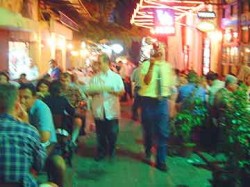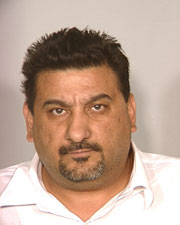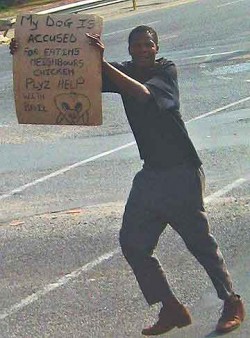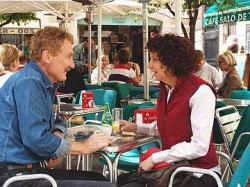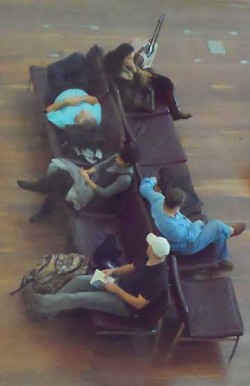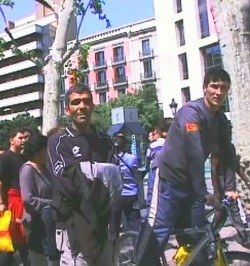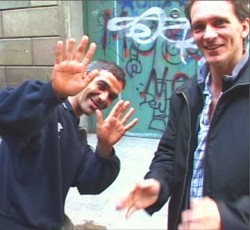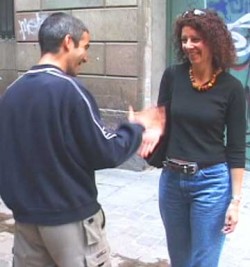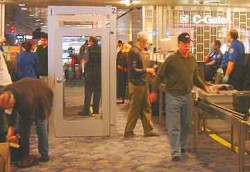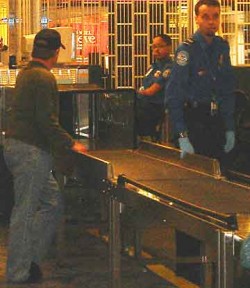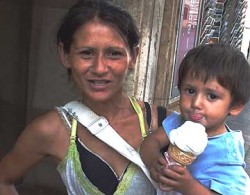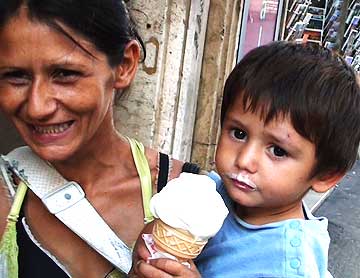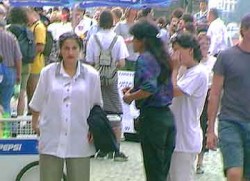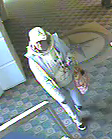
Loot ‘n scoot: Through my police friends, I learned of another devious M.O. resulting in theft from hotel rooms. The thief simply poses as a guest. Wearing pool attire, she enters a hotel room that has a housekeeping cart at the door, as if she’s just returning to her own room from the pool. She tells the maid that she forgot her key, starts looking for it, and dismisses the maid. I suppose her beach bag is big enough for all the goodies she grabs, and she scoots out in her swimsuit looking as innocent as can be.

In another version, a female thief gets a nearby housekeeper to open a hotel room door because she’s carrying a heavy load. She may or may not have spotters on the lookout for guests returning to that floor.
Hotel security
In both cases, the security of our belongings is in the hands of the maids. How well are they trained? How much discretion do they have? When should they break the rules in order to be nice? When should they bend the rules in anticipation of a nice gratuity? What about temporary workers during the hotel’s high season—do they receive as thorough training? How many of us have approached our room only to find that we forgot our key, or the key doesn’t work, and a nice service staff member volunteers to let us in?
Hotel policy is one thing; compliance is another. How do you react when you find that your key doesn’t work (for the third time), the front desk is far away (giant hotel), your feet hurt and your arms are full and you’re dead tired, and the maid with a master key says “I’m sorry. It’s for your own security.”?
The burglars described in the recent police bulletins were females of average height and weight, 50ish and blonde. Nicely generic. The maid may believe she’s seen the impostor; and perhaps she has. Should she risk offending the “guest”?
Perhaps the maid should be required to ask the name of the guest and match it to a list. Yeah, a list on a clipboard left on the cart, that the thief’s accomplice copped a glance at. Perhaps the maid should be required to snap a photo of the guest “for your security.”
As a very frequent hotel guest, I have many times returned to my room to find the door left open by housekeeping staff “just for a minute” while they run to do something else. This always infuriates me, as there’s usually a laptop or two left out, as in the photo here, not to mention other valuables. But this is simply housekeeping error, and with proper training, can be corrected. The impostors described above are skilled social engineers, harder to protect against.
Bruce Schneier is currently blogging from SHB09, the Second Interdisciplinary Workshop on Security and Human Behavior, at MIT. I doubt if discussions covered “tricking hotel maids,” but what a complicated and interesting subject. I would have liked to be a fly on the wall there. Instead, I can read articles by the presenters.
![]()




